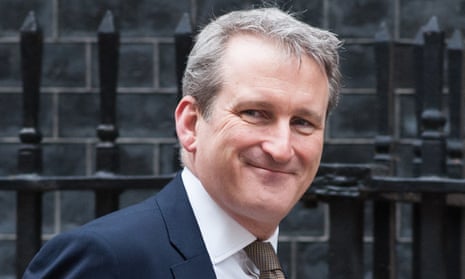Labour has pushed the government into agreeing to a six-month extension of the workplace childcare voucher system after using a parliamentary procedure to force a vote on a series of changes that ministers had hoped to put in place by directive.
However, as expected, the government won a vote on a parallel opposition motion that would have halted the imposition of an earnings threshold for free school meals.
The delay on the abolition of childcare vouchers, which Labour whips were predicting could lead to the policy being abandoned altogether, is another example of the party using Commons tactics to frustrate the government.
The vouchers policy, along with the free school meals changes and plans to amend free childcare for two-year-olds, were part of changes connected to the rollout of universal credit (UC) being passed via statutory instrument, which does not require a Commons vote.
But Labour secured a three-hour debate on the changes using a so-called humble address in which MPs can “pray against” proposals.
At the end of the debate Damian Hinds, the education secretary, vigorously defended the policies, but in response to an intervention by the DUP MP Emma Pengelly he said the childcare voucher abolition was being delayed.
“I have heard the concerns raised about this, and about the timing, and I can confirm we will be able to keep the voucher scheme open for a further six months to new entrants following representations that she has made.”
The employer-backed vouchers are being replaced by a new system of tax-free childcare, but Labour claims the system is poorly understood and its rollout has been botched.
Hinds said he would not back down on the free school meals threshold. Currently all families in England in receipt of UC are entitled to free school meals as a transitional measure while the new benefit is extended across the country. But the government now plans to set an income threshold of £7,400.
Children’s charities have said this will create a cliff-edge as earnings rise. The Children’s Society claims that once a family with one child passes the £7,400 threshold, they would need to earn £1,124 a year more to make up for the loss in free school meals.
“No child receiving free meals now, or you gained them during the rollout of universal credit, will lose their entitlement during that rollout, even if family earnings rise above the threshold,” Hinds assured MPs.
Introducing the debate, the shadow education secretary, Angela Rayner, said: “If the house does not vote for our motions today, over a million families will lose out.”
She referred to Philip Hammond’s cautious optimism about the economy and public spending in his spring statement earlier in the day, saying: “So much for that light at the end of the tunnel the chancellor mentioned.”
Labour lost four votes on the statutory instruments, with Hinds’s concession on the childcare vouchers meaning an opposition motion to scrap the change was defeated by 315 votes to 288.
Labour has previously used humble address motions to push the government to release its Brexit impact studies.
